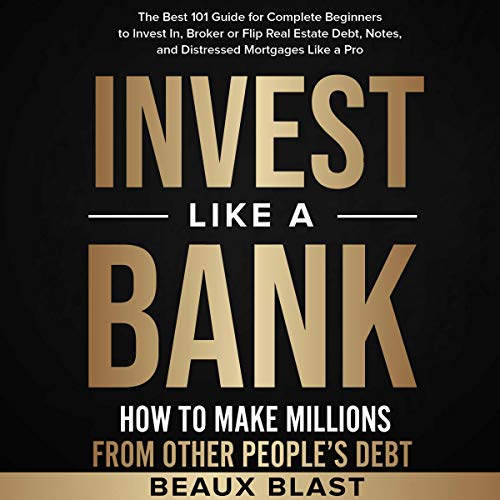Many real estate investors prefer a passive approach to investing. They have neither the time, skills or desire to invest in an active manner. What they do recognize though, is the value that real estate can bring as an investment and the passive investor want those benefits as part of their investment portfolio.

The passive investors primary focus is the identification of real estate related investment opportunities, acquiring a position in that investment and then determining how long to hold, and when to dispose of the investment. Success is largely a function of investment selection and proper timing, with little to no benefit from exerting control over or taking actions directly on how the investment performs.
Passive real estate investment can take a number of forms, with varying degrees of investor involvement. At one end of the spectrum, the investor may directly purchase turnkey properties and hold them as income producing investments. At the other end of the spectrum, an investor may buy into real estate investment trusts (REITS). There are a number of other passive methods across that spectrum.
Methods to Passively Invest In Real Estate
A number of different methods can be used to invest in a passive manner. An investor will want to evaluate the objectives and potential returns for these different approaches and choose those that align best with objectives and risk tolerances.
Income Producing Turnkey Properties
Investors may choose to acquire properties that produce income and never participate in any of the activities involved with developing or managing those properties. This approach rests on the border between active and passive, however can be primarily passive if the investor acquires a property that is ready to be (or already is) leased or rented to product income.
The investor can hire property managers to handle all activities related with managing the property – that would include a manager to find and manage tenants, collect rents, handle repairs and maintenance, and similar activities.
Joint Ventures With Other Investors
Teaming up with another investor (or group of investors) and participating primarily as the partner that is the financier of investment deals is another approach to passive investing. The other investor(s) can bring the time, the rehabbing and construction skills, the negotiation expertise, the property management skills to the partnership.
How the passive investor works with others to structure the venture, determines the division of investment and effort – and the profits – is all negotiable amongst the joint venture team. This approach gives the passive investor the opportunity to reap the benefits of active investing while others do most of the work.
Private Lending
A step removed from the joint venture approach, the private lender also funds the deal but doesn’t necessarily participate in investment gains (or losses). The private lender will typically fund a project and will receive their investment gains in the form of interest payments.
Essentially the private lender is playing a role similar to that of the bank when traditional and conventional financing is used. Private lenders can create their own rules and requirements and will usually be much more flexible on terms and borrower qualifications. Private lenders will need to trust the borrower, but often the interest rate and decision to lend will be based on the specific merits of the investment.
Private Equity
Investors can also invest in real estate through Private Equity. Private Equity real estate funds are professionally managed by the fund who manages investing activities on behalf of large pools of investors in the fund. The fund may acquire properties at scale, develop land, build apartment complexes and other similar activities. Key to the benefit of Private Equity is the ability to do very large scale active investing with large pools of investors who share in the profits.
Private equity funds usually involve higher risks to the investor, but they will also typically provide higher returns on those investments. Private equity investors are typically high net worth individuals that must be accredited (providing verification of income, net worth minimums or trained and licensed investors), and institutions such as pension funds. Private equity investments often required commitment of funds for an extended period of time without the ability to withdraw those funds until certain timelines or conditions are met.
Syndications and Crowd Funded Investing
Similar to private equity, syndicated real estate investments pool large groups of investors together for large real estate investments. These are often formed for a single investment activity of large scale. The organizer puts the deal together, promotes it and individual investors then choose to join in the syndication. Syndication deal can be found through advertisements, websites, investing groups and through mentors and coaches working in the real estate investing industry.
Every potential investment should undergo careful scrutiny by the investor before joining in the syndication. Again, risks can be higher for syndication investments, but returns can be high as well. Often investors must be accredited and are required to go through a vetting and review process. These investments will usually have minimum investment amounts – with $50K and above as a minimum investment not being uncommon.
Another related approach we are seeing in the marketplace now are the rise of real estate investing through “crowdfunding“. Crowdfunded investments may invest in a variety of real estate investment types such as commercial properties, private lending and loans, land and property development, storage properties, and REITs. Whether or not investors are required to be accredited can vary from one crowdfunding investment to another.
Real Estate Investment Trusts (REITS)
REITs are an investment type that can be very passive, and in many situations also very liquid. Some (but not all) REITs are traded on exchanges, just like a stock, mutual fund or an exchange trade fund (ETF). REIT investments can vary greatly in the type of investments that they hold – commercial properties, residential properties, industrial properties, and financing/lending funds.
An investor may choose to invest in REITs as an approach to diversify their investment portfolio but maintain a high degree of liquidity (being able to quickly acquire or dispose of an investment). The wide variety of REIT investment types can provide another level of diversification, or allow an investor to choose where to invest based on their perspective of which type of real estate investment will perform best.

Passive Investing in Commercial Real Estate. Insider Secrets to Achieving Financial Independence
by James Kandasamy

Invest Like a Bank. How to Make Millions from Other People’s Debt
by Beaux Blast

